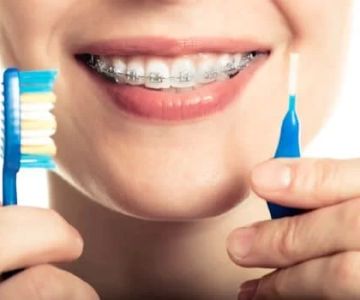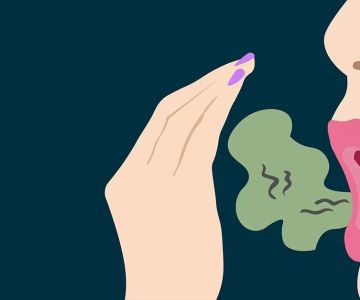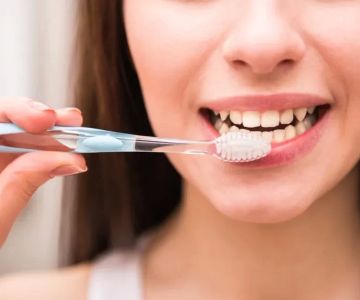How to Avoid Bad Breath with Proper Oral Care
Bad breath, or halitosis, is a common condition affecting millions of Americans. It can cause embarrassment and affect personal and professional relationships. Fortunately, this issue is largely preventable with proper oral care. Understanding the causes of bad breath and implementing effective strategies can significantly improve oral hygiene and general well-being. This article from Dentistry Toothtruth explores practical steps you can take to ensure your breath remains fresh and your mouth healthy.
Understanding the Causes of Bad Breath
The first step in preventing bad breath is understanding its causes. While poor oral hygiene is the primary culprit, other factors like diet, smoking, and systemic illnesses can contribute to halitosis. The mouth is home to countless bacteria; when food particles linger, they break down and produce sulfur compounds that cause foul odors. Additionally, certain foods such as onions and garlic, release odorous particles that can contribute to bad breath. Being aware of these factors is crucial for implementing effective oral care practices.
Brushing and Flossing Regularly
A consistent brushing and flossing routine is essential for fresh breath and good oral health. Dental professionals recommend brushing at least twice a day with fluoride toothpaste and flossing daily to remove food particles and plaque that a toothbrush can't reach. Flossing is especially important as it cleans between teeth and along the gumline, areas often overlooked during brushing. Regular brushing and flossing prevent the buildup of bacteria and ensure breath stays fresh.
Importance of Tongue Cleaning
The tongue can harbor bacteria and food debris, which often contribute to bad breath. Incorporating tongue cleaning into your daily oral hygiene routine can significantly reduce odor-causing bacteria. Tongue scrapers or the bristles of a toothbrush can be used to gently clean the tongue. This simple act can drastically improve breath freshness, and when combined with brushing and flossing, it enhances overall oral care.
Hydration and Diet Considerations
Staying hydrated is vital for maintaining fresh breath. Saliva helps wash away food particles and bacteria, so dry mouth conditions often lead to bad breath. Drinking plenty of water throughout the day can stimulate saliva production. Additionally, mindful dietary choices such as consuming fresh fruits and vegetables, which promote saliva flow and discourage bacterial growth, are beneficial. Reducing caffeine and alcohol intake, which can cause dehydration, is also advisable for combating halitosis.
Regular Dental Checkups
Professional dental cleanings and checkups play an indispensable role in maintaining oral health and avoiding bad breath. Dentists can detect and address issues like gum disease or tooth decay that may contribute to halitosis. Regular visits to the dentist ensure that any potential problems are caught early and that treatments maintain optimal oral health. Furthermore, professional cleanings remove tartar buildup and polish teeth for a healthy, clean mouth.
Role of Lifestyle Changes
Making certain lifestyle changes can prevent bad breath. Quitting smoking is one of the most effective ways to achieve fresher breath, as tobacco products contribute to mouth odor and can damage gums. Implementing stress management techniques and a balanced diet can also positively impact oral hygiene. It's crucial to consider these factors as part of a holistic approach to oral care.
Conclusion: Take Action for Fresh Breath
In conclusion, bad breath is preventable with a comprehensive oral care routine. Practicing good hygiene, staying hydrated, eating a balanced diet, visiting a dentist regularly, and making lifestyle changes are all effective strategies. By understanding the causes and implementing the recommendations provided by Dentistry Toothtruth, you can take decisive action toward fresher breath and improved oral health. Start your journey today to ensure your breath is as fresh as your confidence, making a lasting impression wherever you go.







 Westgate Dental Arts
Westgate Dental Arts Coventry Family Dental
Coventry Family Dental Familia Dental
Familia Dental Dr. Daniel S. Fife, DDS
Dr. Daniel S. Fife, DDS Dentistry At Suburban Square: Michael I. Wollock, DMD
Dentistry At Suburban Square: Michael I. Wollock, DMD Comfort Care Dental
Comfort Care Dental The Importance of Oral Health Education During Pregnancy for a Healthy Pregnancy
The Importance of Oral Health Education During Pregnancy for a Healthy Pregnancy Why Skipping Dental Checkups Can Lead to Bigger Oral Health Problems
Why Skipping Dental Checkups Can Lead to Bigger Oral Health Problems Advantages of Porcelain Dental Restorations
Advantages of Porcelain Dental Restorations Best Tips for Brushing Your Teeth Properly for Healthy Gums: Essential Techniques for Oral Health
Best Tips for Brushing Your Teeth Properly for Healthy Gums: Essential Techniques for Oral Health How Can Diabetes Cause Tooth and Gum Problems? Preventing and Managing Oral Health Issues
How Can Diabetes Cause Tooth and Gum Problems? Preventing and Managing Oral Health Issues Healthy Habits for Promoting Good Oral Health and Hygiene: Tips for a Healthy Smile
Healthy Habits for Promoting Good Oral Health and Hygiene: Tips for a Healthy Smile